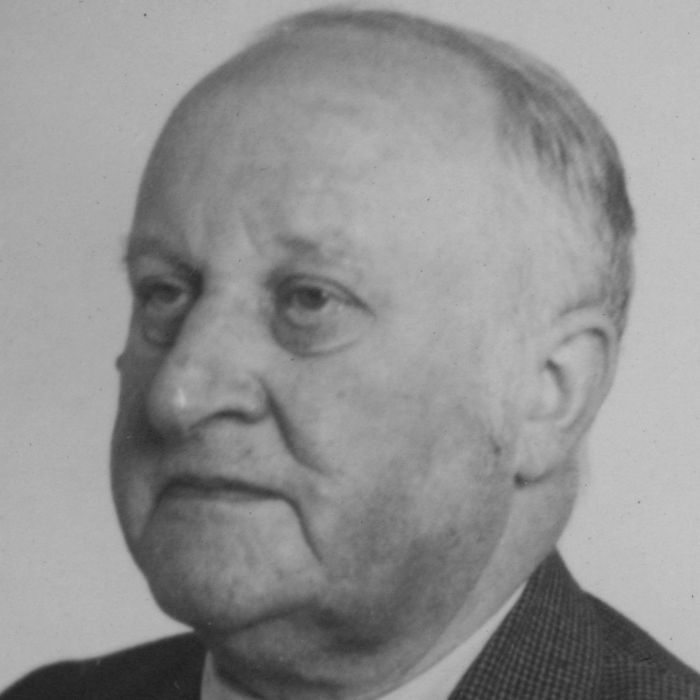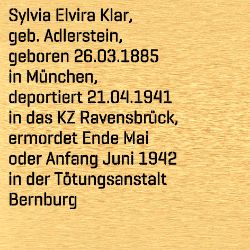+++ The memorial sign was damaged in an accident and is currently being repaired +++
Max Klar was born in Weimar on December 20, 1875. His father, textiles trader Carl Klar, owned a shop there selling manufactured and fashion goods. In 1900 he joined the “Central-Verein deutscher Staatsbürger jüdischen Glaubens“ (“Central Association of German Citizens of the Jewish Faith”), which made a stand against the increasing rise of anti-Semitism. Max Klar studied Medicine in Freiburg. He gained his licence to practise medicine in 1906 and shortly afterwards opened an orthopaedic and surgical sanatorium in Munich. On July 23, 1910 he married Sylvia Adlerstein. She shared his political and pacifist views. The Klars were close to the Sozialdemokratische Partei Deutschlands (SPD, German Social-Democratic Party) and were friends of Wilhelm Hoegner, who later became Bavarian Minister President. Max Klar was also a member of the Munich committee of the “Verein zur Abwehr des Antisemitismus” (“Defence Association Against Anti-Semitism”) and was for many years the chairman of the Munich local group of the “Deutsche Friedensgesellschaft” (“German Peace Society”). The “Verein zur Abwehr des Antisemitismus” was dissolved after the Nazi seizure of power. The “Friedensgesellschaft“, too, was broken up. Its leading members were sent to prison. On March 14, 1933 the police arrested Max Klar and took him to Stadelheim prison in Munich. It is not clear how long he stayed there. Max and Sylvia Klar subsequently supported political opponents of the Nazis. When Wilhelm Hoegner had to go into hiding after the banning of the SPD in June 1933, he stayed for a few days in the Klars’ hunting lodge near Ingolstadt and later in their apartment at Jutastraße 24 in Munich. The Klars also provided financial support for the wife of the resistance fighter Gottlieb Branz after his arrest. In the course of the “Kristallnacht” pogroms, Max Klar was arrested on November 10, 1938 and deported to Dachau concentration camp. He died there on November 30, 1938 because he suffered from diabetes and received no medicine. A contemporary witness later related that “a well-known doctor, suffering badly from diabetes, with no insulin, with no treatment, was perishing slowly, seeing and recognising, on his straw pallet”. (text Ingrid Reuther, editor C. Fritsche, translation. C. Hales)





